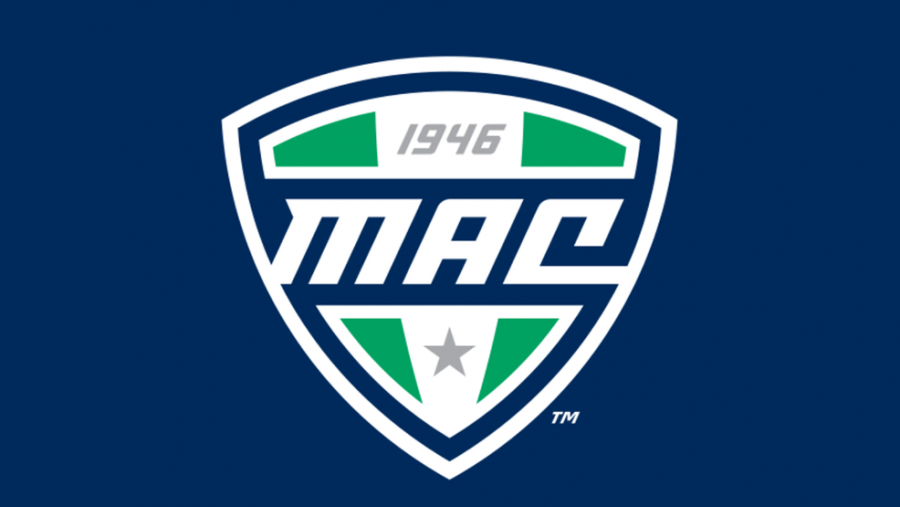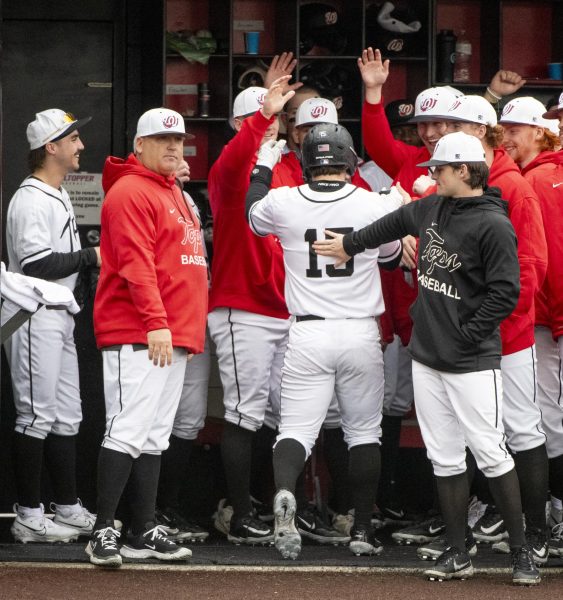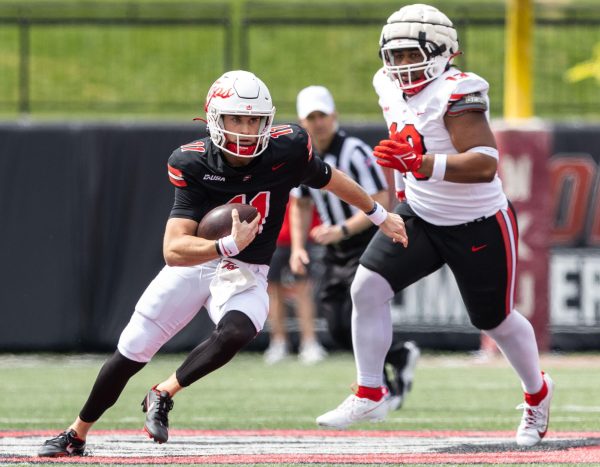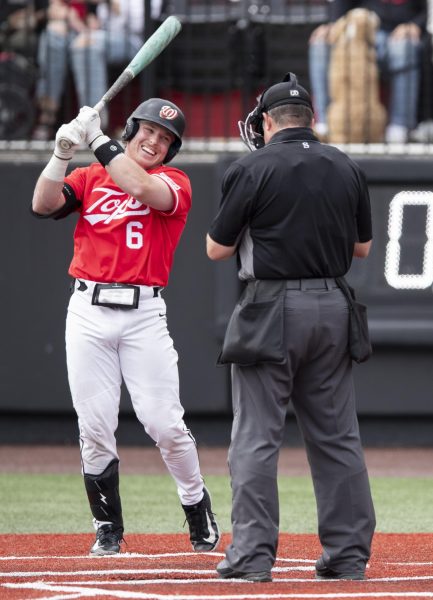Are the Hilltoppers ready for MACtion?
November 2, 2021
Multiple news outlets have reported that WKU and rival Middle Tennessee State University are prime candidates to join the Mid-American Conference, with conference presidents meeting this week to consider the idea of expansion.
MAC “likely” to add Western Kentucky & Middle Tennessee, perhaps by end of week, pending approval by MAC presidents, sources told @ActionNetworkHQ. If so, C-USA will have lost 11 of 14 members w/only FIU, Louisiana Tech & UTEP remaining #MACtionhttps://t.co/E5r8QgRXnZ
— Brett McMurphy (@Brett_McMurphy) November 1, 2021
WKU has so far kept quiet during the NCAA’s realignment saga while other Conference USA schools have fled to the American Athletic and Sun Belt Conferences. At the time of writing, six programs have filed to join the AAC and three others, including WKU’s rival Marshall, have announced their intentions to join the Sun Belt.
C-USA is currently in a five-year deal with CBS Sports Network that pays out approximately $400,000-$500,000 to its members annually, with many games broadcast via Facebook or on subscription services like CUSA.tv. Fans of C-USA programs are less-than-satisfied with the current media package.
“I was excited to be in Conference USA,” James Hamilton, a WKU alumnus and fan of the Hilltoppers since 1994, shared via Twitter. “I felt like we had finally arrived and then the leadership of the conference started making bad decisions, especially when it came to TV packages.”
Support for the move exists among WKU’s fans and alumni. According to a poll run in both the Herald’s newsletter and sports twitter account on Monday, 92 of respondents felt it was a “good move” and 56 thought it was “fine”. Only 18% of respondents would be dissatisfied with the call.
ESPN Exposure
The MAC isn’t the most glamorous of homes, but the conference has built a reputation for gritty football action and is home to a dozen passionate fanbases. Most importantly, the MAC is currently in the middle of a 13-year deal with ESPN, who serves as the conference’s exclusive rights holder.
The deal is reportedly worth over $100 million and pays out approximately $670,000 to each of the MAC’s 12 current members. This deal should appeal to fans who are sick of watching the Hilltoppers play on Facebook or subscription-based streaming services. The conference even has its own tagline for its annual midweek spread of football games: MACtion.
Alan Rucker, managing editor of the MAC-focused blog Hustle Belt, feels that this niche will benefit WKU in the long run when it comes to exposure.
“There are probably more eyeballs on MAC games on Tuesdays and Wednesdays than you’re going to get on an ESPN+ game on a Saturday when you’re competing against every other Big 10 and SEC school,” Rucker said. “So there’s some advantages to that and the MAC has really carved that out as its niche on ESPN.”
Ease of Travel
The existing MAC programs are tightly-knit, geographically speaking, at least compared to the sprawl of C-USA. If the Hilltoppers and Blue Raiders are absorbed, the conference’s footprint will extend from Murfreesboro, Tennessee up to Buffalo, New York, with NIU serving as the western-most outpost in Dekalb, Illinois.
This proximity of member schools creates more opportunities for WKU fans to travel with their team. For Noah Onkst, a WKU graduate living in Northern Kentucky, a move to the MAC would allow him to support his alma mater with greater ease.
“The other thing I think is bad with C-USA is the geography,” Onkst said. “The league is spread from Virginia to Miami to Texas. The basketball tournament is always in Texas. Those are really far destinations to travel. I looked today and six MAC schools are driveable for me in less time than it takes to get to Bowling Green. Cleveland, where the MAC basketball tournament is held, is only four hours away for me. I think that is great.”
Who Beats WKU?
The potential to bring along an established rival in MTSU to help ease the transition also appeals to the Hilltopper faithful.
“We need that rivalry while we build up new rivalries,” Hamilton said. “I love to hate those guys.”
For Rucker, the MAC doesn’t present the opportunity for the Hilltoppers to build rivalries in the traditional sense. Because the conference lacks a consistent star program, WKU should slot in as the Goliath to the MAC’s Davids and become rivals with all.
“My initial thought is that there’s no natural rivalries,” Rucker said. “Obviously geography plays a part in that – Miami of Ohio is close, Ball State’s close, Northern Illinois somewhat would be close, but I think [rivalries] will really be contingent on which team in the preseason build-up is tapped as the one to unseat Western. I just think Western is going to be that team for a while.”
The level of competition in the MAC is similar to what WKU currently faces in C-USA, with the two conferences ranked 9th and 10th in RPI index respectively. This should allow the Hilltoppers to hit the ground running and establish themselves as winners in a new home.
“Western comes in and is immediately a favorite for the conference in football,” Rucker said. “The crowd support at Western, I think, is far greater than most MAC schools. Just to focus on the two main sports, football and basketball, Western comes in and is immediately a dominant program in both. It’s one of those things where, is it worth being in a smaller conference, a less prestigious conference, if you can dominate it?”
Competing with smaller midwest schools may give WKU a leg-up in recruiting in the heart of MAC territory.
“Another benefit I see is that I think football will have a better chance to recruit Ohio,” Onkst said. “There are plenty of good players from Ohio that aren’t good enough to play at Ohio State but would be great assets for WKU.”
One potential downside of the MAC is a lack of solid basketball culture. Rucker explained that since the tides of MAC basketball ebb and flow, WKU could stand to benefit as a consistently solid program year in and year out.
“The MAC is kind of a weird conference, in basketball it’s a crapshoot every year, you just never know who’s gonna be good,” Rucker said. “Usually you’ll have a senior dominated team that will be great, they’ll graduate other guys, they’re back at the bottom of the pile and two or three years later they’re back again with a good recruiting class. When you have teams that are kind of always in the middle, they never really get bad. They never really get good.”
Temporary Solution?
Rucker expressed doubt that WKU would stick around for very long if the Hilltoppers did make the move. The program could feast on middle-of-the-pack conference teams and develop a hunger to jump up another level, similar to Marshall at the turn of the century.
“From my perspective, the MAC gains more out of WKU than WKU gains out of the MAC, across the board,” Rucker said. “WKU may land in the MAC, but I can’t imagine that’s the destination they want to be at. I can’t imagine It’ll be for very long. I would anticipate, as a MAC aficionado, that Western would be sort of like a Marshall or a Central Florida – they would be here for a little bit of time until something better comes along and they’re out.”
Rucker feels that WKU’s out-of-conference scheduling capabilities, combined with the program’s athletic pedigree, could set the school up for major national successes.
“The reputation [WKU] has immediately puts them ahead of the other MAC schools, and from my standpoint, their non-conference ability is going to be better than other MAC schools,” Rucker said. “And then they’ve got a conference they can easily run the table in almost every year. I think Western positions themselves on the football side to be like a Marshall back in the day when [Byron] Leftwich and [Chad] Pennington would just cycle through and kick ass all through the MAC.”
“They only had to worry about winning maybe one marquee game,” Rucker continued, “And all of a sudden, they were ending every year in the top 25. That’s where Western is positioned.”
WKU’s place in realignment should become more clear in the coming days, but plenty of support already exists for the Hilltoppers to join in on some MACtion.
Sports Editor Jake Moore can be reached at [email protected]. Follow him on Twitter @Charles_JMoore.
























